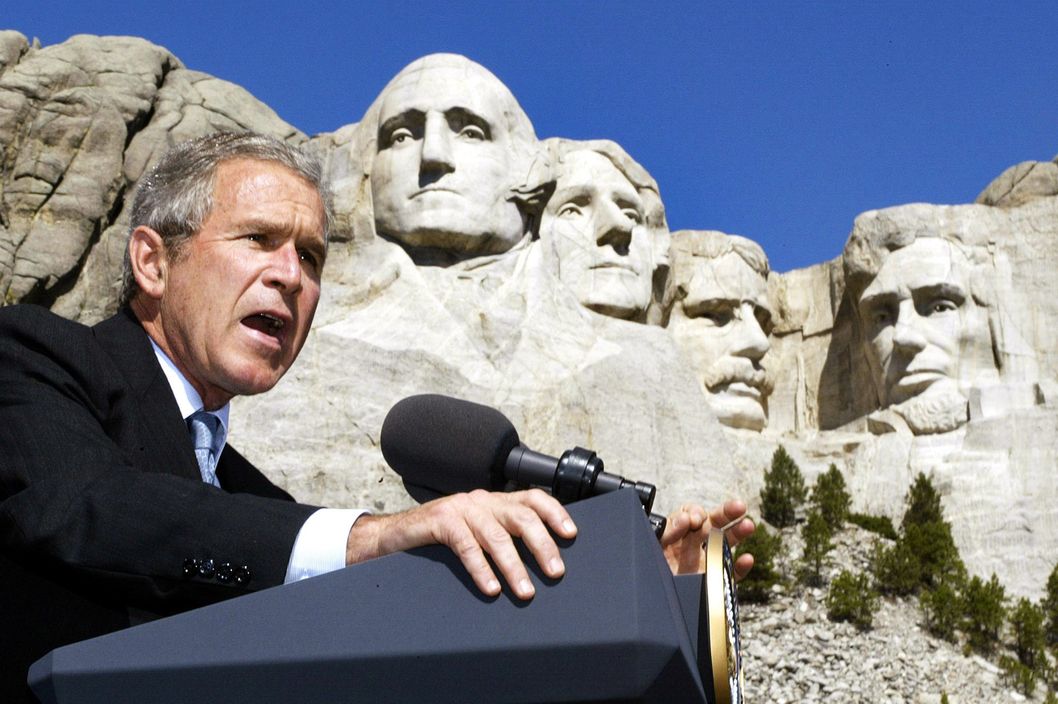
It flew by my facebook feed this morning so I figured I should post it here.
Here's background on the photo op.
He was arguing against proposals made in the Senate that would have limited his direct control of the personnel in the newly created Department of Homeland Security. Democrats were concerned that this was an attempt to limit civil service protections for federal employees. Republicans wanted to ensure the entire agency was directly controllable by the president.
Images like this are argued to be able to overcome negative coverage by the national media.
Click here for a 2004 assessment of W. Bush's relationship with the press.
For Obama's click on these. Apparently its a bit tense:
- Why reporters are down on President Obama.
- The Presidency and the Press.
- The president and the press.
- In Obama’s war on leaks, reporters fight back.
- Is Obama at war with journalists?
- Obama Administration Has Gone To Unprecedented Lengths To Thwart Journalists, Report Finds.
